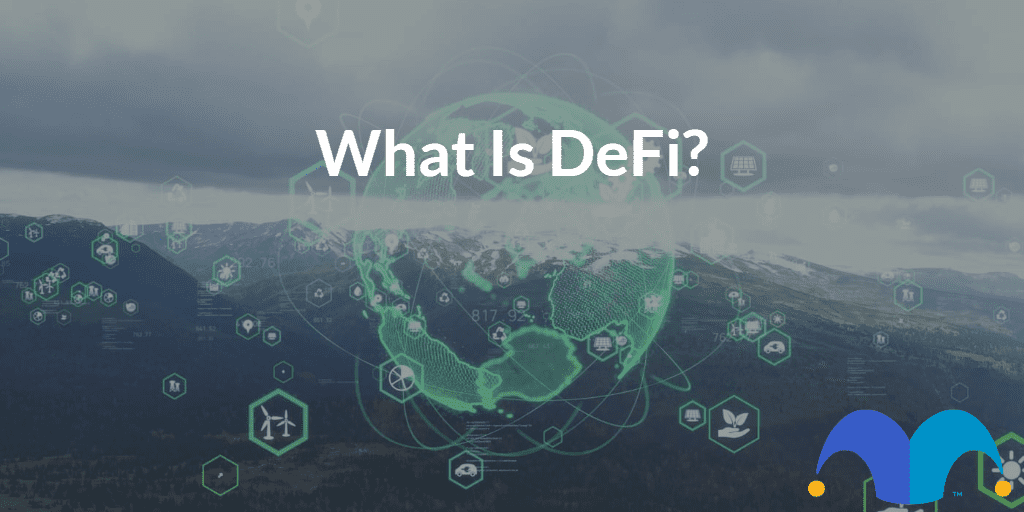Understanding the crypto ecosystem can be confusing at the best of times. It gets even more challenging when there are new areas like DeFi to wrap your head around.
Here’s everything you need to know about this interesting concept and how it could change finance as we know it.

What does DeFi mean?
DeFi is an abbreviation of ‘decentralised finance’. It is an umbrella term that refers to financial applications outside the ordinary systems.
‘Decentralised’ means that there is no central authority that oversees what is going on. Control lies completely within the code and with the users taking part in the system. This can have both good and bad implications.
Taking inspiration from blockchain technology, these apps are not under the control of banks or governments.
Why is DeFi important?
Although cryptocurrency gets a lot of bad press because of some bad actors, not all cryptocurrencies are pointless or dodgy.
The real importance of cryptocurrency is the technology behind it all. This tech has the potential to shake up quite a few different industries. It’s not all about ‘mooning’ and betting on price action.
DeFi presents an opportunity for a huge global reform of financial institutions. Making finance transparent and subject to rules can help prevent issues such as those that led to the 2008 crash. Not only this, but it could allow for complete open systems to be built outside the reach of governments and banks.
How does DeFi work?
Most applications are built on the Ethereum network. This is because the platform has the ability to implement smart contracts. It’s something that’s not easy to do on the Bitcoin network right now, although this should change with the Taproot upgrade.
A smart contract just means that a transaction can complete automatically if certain conditions are met. This may not sound like much, but it can increase efficiency in lots of industries because it removes the need for additional admin.
The basic idea is that DeFi can allow things like secure peer-to-peer financing. This could basically be of use to anyone who uses money, including individuals, businesses charities. Rather than going to banks or companies for loans, people can borrow money and fund ideas by crowd-sourcing.
Which DeFi applications are popular?
There are many possible uses for this technology. Let’s take a look at some of the most popular crypto DeFi projects.
Decentralised exchanges
Places where users can trade fiat money and cryptocurrency directly without the need for a central bank or a crypto exchange (like Coinbase).
Stablecoins
Digital coins that are tied to a currency like the US dollar or sterling to keep the price steady. The idea is to help provide more stability and liquidity to cryptocurrency markets.
Lending platforms
Places where people can both lend and borrow money directly. There’s no need for a controlling party or someone in the middle to manage the lending.
These systems are collateral-based. So, if you want to take out a loan, you need to stump up some collateral like Ether (ETH) tokens to prove that you are legit. But there is no requirement for things like credit scores or identity checks.
Prediction markets
Areas where people can bet on the outcome of future events. This can include speculation on things like elections. It works in a similar way to derivatives markets, but based on events rather than assets.
Takeaway
DeFi proposes an interesting use case for crypto and blockchain tech. But it is still a work in progress.
This is a very curious space to keep an eye on. It could change finance as we know it. But this disruptive technology is far from a safe haven and is very difficult for newcomers to navigate.
Investing in this area is very risky and there are no safeguards. So treading with extreme caution is vital. There are plenty of safer ways to invest whilst you watch how all of this plays out.
Investing in Cryptocurrency is extremely high risk and complex. The Motley Fool has provided this article for the sole purpose of education and not to help you decide whether or not to invest in Cryptocurrency. Should you decide to invest in Cryptocurrency or in any other investment, you should always obtain appropriate financial advice and only invest what you can afford to lose.